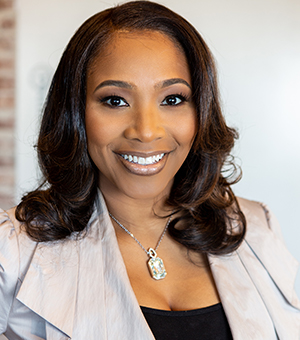When you’re experiencing unusual symptoms or what you thought was just a cold or the flu lingers too long, someone in your life is sure to say, “You’d better go to the doctor.” It’s a natural response, to want someone more qualified to take control of the situation and make sure you’re okay. The doctor talks to you, maybe conducts an examination, maybe runs some tests.
Most of us rely on that. If the doctor isn’t concerned after whatever procedures and information gathering they think is necessary, why should we? And, we should be able to count on that. Unfortunately, that’s not always how it plays out.
Researchers at Johns Hopkins Medicine estimate that about 100,000 Americans die or are permanently disabled each year due to failure to diagnose, wrong diagnosis, or delayed diagnosis. And, those are just the most serious cases–that number doesn’t include patients who suffered unnecessarily or whose treatment and recovery time was significantly increased but fully recovered in the end.
How Does Misdiagnosis Happen?
One reason misdiagnosis and delayed diagnosis happens is that medical providers are negligent. This can happen in many different ways. Perhaps the provider dismisses complaints from a patient as being imagined, blown out of proportion, or drug-seeking. This type of negligence impacts some demographics more than others. For example, women are significantly more likely to be misdiagnosed when suffering a heart attack or stroke. They’re seven times as likely as men to be sent home from the emergency room while having a heart attack.
Who you are can impact the likelihood of misdiagnosis in other ways, too. With thousands of diseases, some common and some quite rare, doctors and other medical providers rely in part on probability to narrow down the possibilities and decide what to test for. But, those probabilities–especially when based on older studies–often rely on data relating mostly to white men. Those assumptions can lead to misdiagnosis or failure to diagnose if the condition is more common or presents differently in women or people of another race.
In some cases, testing and equipment may be less useful based on demographics. For instance, a recent study revealed that pulse oximeters–the device that clips to your finger to read your blood oxygen saturation–is far less reliable with dark-skinned patients. Medical professionals began to notice the problem during the Covid-19 crisis, when oxygen saturation became a critical metric for a very large number of patients at the same time.
Then, there’s garden variety negligence. Maybe the doctor is distracted by something going on at home, or hasn’t kept up on the latest literature regarding the condition in question. Maybe someone in the lab mixes up blood samples or makes a mistake in processing and you get inaccurate test results.
Misdiagnosis and Medical Malpractice
Not every case of misdiagnosis or delayed diagnosis involves negligence. In some cases, for example, research or testing hasn’t developed to the point that a doctor could reasonably have been expected to make the diagnosis. To establish a medical malpractice claim, the injured person or surviving family member must be able to establish that the doctor or medical facility did not perform up to the accepted standard of care. And, that standard evolves as additional information and diagnostic tools become available.
For example, a physician who made a mistake because he relied on a pulse oximeter reading that said a black man’s oxygen saturation was at healthy levels a few years ago may not have been found negligent, since the device was a generally accepted tool for making that determination. However, as new information emerges, physicians will be expected to be aware of the weaknesses of that device with darker-skinned people and adapt accordingly.
Proving Medical Malpractice
Pursuing a medical malpractice claim in Georgia is more complicated than filing a personal injury or other negligence-based lawsuit. In part, that’s because Georgia law creates obstacles to protect physicians and others in the medical profession. Several years ago, the Georgia Supreme Court struck down statutory limits on damages in a medical malpractice case. But, the procedure remains complex. Unlike other types of negligence cases, a professional malpractice case requires an affidavit from a qualified member of the profession identifying at least one negligent act or omission.
Who is considered “qualified” can be a hotly contested issue. And, the affidavit is just a threshold issue. In court, you’ll be required to prove that the physician’s or other medical provider’s actions did not meet the standard of care, which often involves a battle of experts. It’s important to work with an attorney who is experienced in hiring and working with experts to address the complicated and often technical medical issues in a malpractice case.
Atlanta attorney ReShea Balams fights for maximum compensation for people who have been injured through someone else’s negligence, including victims of medical malpractice. The Balams Firm offers free, no-obligation consultations so injury victims can gather the information they need to make good decisions in difficult times. You can schedule yours right now by calling 855-352-2727 or filling out the contact form on this page.










